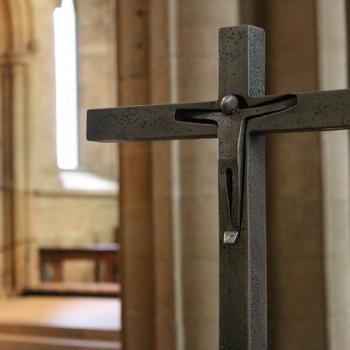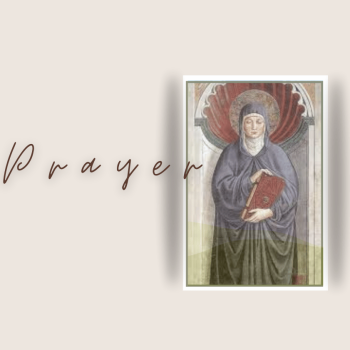Americans have made an idol of government. So, in fact, have all the peoples of the Western world. This may seem strange, coming from someone who writes about politics and government as much as I do. But this point has been growing more persistent in my mind over the last few years, and I think it is extremely important for us to consider the idea.
By "government," I mean our temporal, secular government. I also mean our ideas of government: what we think it is for and how we believe it should be run. Americans today are convinced that if government is not organized to fulfill our expectations for it, we cannot even function. In some ways, European political thought has gone further than ours has, attributing to government almost magical powers to reorder the human condition, adjudicate moral issues, and orchestrate intellectual obedience.
This is not a fault particular to one side of the political spectrum. Both the Left and the Right, in their current incarnations, are overly prone to put faith in government and give a sort of spiritual loyalty to particular ideas of it. The political factions manifest this in different ways, but resorting to government is a pronounced reflex for both sides. Even in cases where they do not propose specific government "solutions," they cannot rest until there is at least a government attitude toward the issue.
We are bound to think about government, of course. Even the smallest, least intrusive government is still one of the most significant factors in daily life. We will never be able to dispense with it. But our modern fault is putting too much trust in it. We turn too much over to it, and we believe that it has—or ought to have—greater power over the human condition than it does. We think of government as a savior, an author of justice, a source of bounty, a final authority, a projection of our dreams, and a bulwark against disaster.
Christians will recognize in this list the attributes of God. The historically minded may also recognize the character assumed by the divine-right monarchs of Europe and the theocratic emperors of the ancient world. There is nothing new about people mistaking human arrangements for the hand of God, but our era is the first in which we have fallen into the old pattern while avowing that God has nothing to do with it. There is a unique, self-deceiving danger in this.
Political conservatives might insist at this point that they do not put their faith in government. As a conservative myself, I understand that argument and the distinction between how the Right and Left propose to use government. But conservatives still tend to believe that what will set Americans on a more sustainable national path is a better idea of government. Christians (and Jews and Muslims, for that matter) are as likely to believe this as agnostic or atheist conservatives are. The conservative concept for improving our lives and guaranteeing our future may be smaller government, as opposed to bigger, but it is still a government-centric concept. We look first to fix government in order to solve the crises of our economy and society. This puts government in first place as the nexus of all solutions.
My purpose here is to take a step back from our partisan political beliefs and look at the fact that regardless of the human issue or situation, temporal government is too often the first thing we think of. The winner in all this is the idea of government—not any one ideological concept of it, but the mental impression of "government" hovering over each of our minds. Government has become the object of a mass obsession. It uses up tremendous amounts of our spiritual energy; we might justly be said to have a habit of studying it, praying to it, and waiting for it to give us signs and portents.
This is true even in America, which has been unique since its founding. Ours was the revolution that didn't fall to a dictator; ours the constitutional republic that endured. If I fervently wanted this nation to take the lead in one thing now, it would be waking up to our idolatry of government. All temporal government inevitably competes with God for our trust, aspirations, and loyalties. America's Founders gave us a limited government because they understood that. Their purpose was not to make a better world through government but to limit the opportunity of government to compete for the heart, will, and livelihood of each of us.
We can hardly imagine a world in which government recedes absolutely as an intellectual and spiritual factor. But in the end, government is just composed of other people whom we have authorized to use force—against us, if necessary. As long as it remains the primary focus of our hope for the future, we can expect to be bound, and disappointed, by its limitations. But if we repudiate it as an idol—as a competitor to God for our dependence and loyalty—we may be amazed at how it seems to start improving.
3/14/2011 4:00:00 AM





